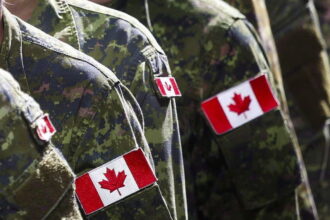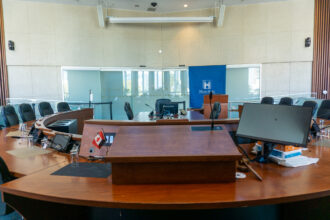In a significant pivot that has sent ripples through Ottawa’s political corridors, the Liberal government unveiled a revised version of its border security legislation yesterday, strategically shedding its most contentious provisions while maintaining robust mechanisms to control immigration flows. The overhauled Bill C-12 represents a calculated political recalibration as the Trudeau administration attempts to navigate intensifying public concerns about border integrity without alienating its progressive base.
Immigration Minister Mark Miller, presenting the legislation at a press conference flanked by security officials, emphasized that the revisions reflect a “balanced approach to national security and our humanitarian obligations.” The new iteration notably abandons the controversial “safe third country” expansion that would have allowed Canada to turn away asylum seekers who had passed through other nations deemed secure—a measure that had drawn fierce criticism from refugee advocacy groups across the country.
“We’ve listened carefully to stakeholders and constitutional experts,” Miller stated. “This bill preserves our ability to manage borders effectively while respecting Canada’s long-standing commitments to international refugee protections.”
Despite removing certain flashpoints, the legislation retains considerable authority for the government to implement stricter immigration controls. Under the revised provisions, the Immigration Minister maintains expanded powers to establish new visa requirements through ministerial directives rather than the more cumbersome regulatory process—a change that could significantly accelerate Canada’s response to emerging migration patterns and security concerns.
A CO24 Politics analysis shows that the retained measures align with growing public sentiment favoring tighter border controls. Recent polling indicates 68% of Canadians support enhanced screening procedures, particularly as Canada News outlets have highlighted increased irregular crossings at remote border points.
Conservative immigration critic Tom Kmiec characterized the revisions as “half-measures designed for political optics rather than substantive border security,” arguing that the bill “still lacks the necessary enforcement mechanisms to address the root causes of irregular migration.” The Conservative opposition has consistently pushed for more stringent border measures, including expanded detention authorities for border officials.
Immigration experts note that the bill introduces subtle but potentially far-reaching changes to Canada’s refugee determination system. Dr. Audrey Macklin, immigration law professor at the University of Toronto, told CO24 News that “while the headline-grabbing provisions have been removed, the bill still contains significant administrative adjustments that could substantially alter how refugee claims are processed in practice.”
These technical modifications include streamlined procedures for determining claim eligibility and expanded grounds for claim ineligibility—changes that could accelerate deportations while potentially limiting access to full refugee hearings for some claimants. The Canadian Bar Association has expressed concern that these procedural changes could undermine due process protections that have been central to Canada’s refugee system.
From an economic perspective, the legislation introduces new compliance requirements for employers hiring temporary foreign workers, responding to documented abuses within certain sectors. These measures reflect growing recognition that CO24 Business interests in maintaining access to international labor must be balanced against worker protections and program integrity.
The Canadian Council for Refugees, while acknowledging improvements over the original draft, maintains serious reservations. “The government has addressed some of our most pressing concerns, but several provisions still risk undermining Canada’s commitment to refugee protection,” said executive director Janet Dench. “The accelerated removal provisions particularly concern us, as they could return vulnerable people to danger without adequate safeguards.”
As Canada adapts its immigration framework in response to global migration pressures, the revised Bill C-12 exemplifies the delicate balancing act facing Western democracies. Similar legislative adjustments are occurring across Europe and in the United States, reflecting a broader recalibration of immigration policies in response to shifting public attitudes and security considerations.
The bill now advances to committee review, where additional amendments are anticipated before final parliamentary consideration. As this process unfolds, the fundamental question remains: can Canada maintain its tradition of humanitarian leadership on the World News stage while simultaneously addressing legitimate concerns about border security and immigration system integrity?







